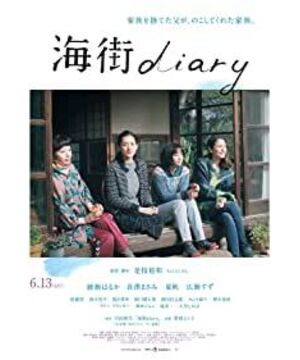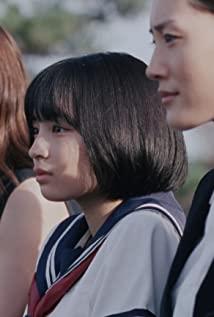"Late Spring" (1949) The daughter showed strong jealousy and anger at her father's remarriage. After the father married the daughter, he was pleased to cut the apple, and suddenly stopped -- raised his head to cut the apple, bowed his head and thought about the girl! The meandering skin and white flesh symbolize the disintegration of the gorgeous kimono on the wedding night. Not without the ambiguous father-daughter relationship expressed so sincere and delicate, looking at the world, only Ozu.
Aside from the sparks in these details, Ozu's works are so beautiful, and the characters are too flat. It is probably because of this that it is Mikio Naruse who is more inclined to express complex human nature (representative works "The Wanderer" and "When a Woman Walks Up the Stairs"), in his words, "Narase's cognition of human nature is more dark".
The Buddhist concept of "impermanence" has a great influence on Japanese culture. Yukio Yoshida, a great writer and samurai from the north of Emperor Houyuta, said: "The world is impermanent, and it feels wonderful and infinite." It is precisely because of the deep realization that life is as poignant and short as cherry blossoms, the Japanese will work hard and live to death. Naruse Mikio , Fukasakuxin Er and others' works are full of high-spirited struggle attitudes.
It was Hirokazu Koreeda who had a high starting point. His debut novel, The Light of Magic (1995), used the lens to present the splendor of life and the quiet beauty of death. ; I finally had a warm and lovely little family, and my husband committed suicide without any warning or reason. Resolving all of this has become a life problem that the heroine cannot avoid.
"Walking On" (2008) The pain of losing a child extends in the ordinary years, however, there are still inspiring youth dance songs in the memory; "Like Father Like Son" (2013) is exquisite and gorgeous, and sold 3.2 billion days in the country. Yuan; "Sea Street Diary" is beautiful, cherry blossoms, kimonos, fireworks night, human feelings, human nature, human body and the ancient capital Kamakura are as beautiful.
Life is unsatisfactory, nine times out of ten. It is Hirokazu Koreeda's transcendence that, in addition to the beauty, he never avoids the pain in life: the irresponsible father abandons his family and his lover, and the mother simply leaves her three daughters to her grandmother to take care of. After the death of their father, the three sisters brought their half-sister to Kamakura, another warm family drama.
The composition of the film and the use of light have reached a very high level. The shots on the walk or on the mountain trail seem to be bland, but in fact, they have been carefully planned to present the most beautiful moments of the characters, and the pictures must be exquisite and exquisite. There are many scenes of eating, and it is by no means a simple repetition. Enjoying exquisite food elegantly has almost become a prescribed action in Japanese healing movies.
The eldest sister hated her father at first: "Even if he used to be kind and kind, in the end he was just a bad father." Later, he changed his words: "Although he is not a good father, he may be a good man." See here You will understand that the director who loves Naruse Mikio is just Ye Gong's good dragon. Touching the darkness of human nature lightly, inexplicably easily resolves and smoothes the huge creation in the characters' hearts, and how limited the transcendence of Ozu is, it will inevitably breed more dissatisfaction.
It was Hirokazu Kore-eda who felt that the fourth sister played by Suzu Hirose had a unique sense of arrogance, that kind of innocence but a little alienated from others. Similar to the eldest sister Yukio Kada (played by Ayase Haruka), who is solely responsible for the family, the director exerts too much force, and the actors are in chaos. As soon as they see these two actors' piercing eyes, they will be in all kinds of violations and embarrassment. The two of them ran to the top of the mountain together and scolded their parents "Baga". It was not so much that the characters poured out their inner depression, but that the director was perfunctory to the audience.
In general, the branches are calm and delicate, flat with bumps and undulations, but it is not atmospheric enough. The dojo is built in a screw shell, and it lacks the vision and depth of the Japanese golden generation. The tragic consciousness of life expressed in "Phantom Light" Ambiguity and uncertainty are short-lived like phantom light.
The country is unfortunate and the poet is lucky, and vice versa. The new generation of Japan lacks personal experience of suffering, and presents the delicate and subtle beauty of human nature and human feelings, which is the best representative. The new generation who grew up in the honeypot began to chew waste wood youth with relish. "One Hundred Dollar Love" (2014) is not as bloated as the old woman's robbery (2014), but the whole film is bloated and procrastinated. 2013). Films of this level are frequently selected as the top ten films of the year, and the rest can be seen.
View more about Our Little Sister reviews











